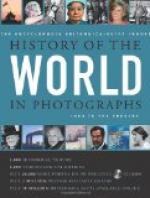Post-classical Literature.—As to what happened in the world of angling in the first few centuries of the Christian era we know little. It may be inferred, however, that both fish and fishermen occupied a more honourable position in Christendom than they ever did before. The prominence of fishermen in the gospel narratives would in itself have been enough to bring this about, but it also happened that the Greek word for fish, [Greek: ICHTHUS], had an anagrammatic significance which the devout were not slow to perceive. The initials of the word resolve into what is practically a confession of faith, [Greek: Iesous Christos Theou Uios Soter](Jesus Christ, Son of God, Saviour). It is therefore not surprising that we find the fish very prominent as a sacred emblem in the painting and sculpture of the primitive church, or that Clement of Alexandria should have recommended it, among other things, as a device for signet rings or seals. The fisherman too is frequently represented in early Christian art, and it is worthy of remark that he more often uses a line and hook than a net. The references to fish and fishing scattered about in the writings of the early fathers for the most part reflect the two ideas of the sacredness of the fish and divine authorization of the fisherman; the second idea certainly prevailed until the time of Izaak Walton, for he uses it to justify his pastime. It is also not unlikely that the practice of fasting (in many cases fish was allowed when meat was forbidden) gave the art of catching fish additional importance. It seems at any rate to have been a consideration of weight when sites were chosen for monasteries in Europe, and in many cases when no fish-producing river was at hand the lack was supplied by the construction of fish-ponds. Despite all this, however, save for an occasional allusion in the early fathers, there is hardly a connecting link between the literature of Pagan Rome and the literature that sprang up on the invention of printing. One volume, the Geoponica, a Greek compilation concerning whose authorship and date there has been much dispute, is attributed in Bibliotheca Piscatoria to the beginning of the 10th century. It contains one book on fish, fish-ponds and fishing, with prescriptions for baits, &c., extracted for the most part from other writers. But it seems doubtful whether its date should not be placed very much earlier. Tradition makes it a Carthaginian treatise translated into Greek. A more satisfactory fragment of fishing literature is to be found in the Colloquy of AElfric, written (ad pucros linguae latinae locutionis exercendos) towards the end of the same century. AElfric became archbishop of Canterbury in A.D. 995, and the passage in the Anglo-Saxon text-book takes honourable rank as the earliest reference to fishing in English writings, though it is not of any great length. It is to be noted that the fisher who takes a share in the colloquy states that he prefers fishing in the river




